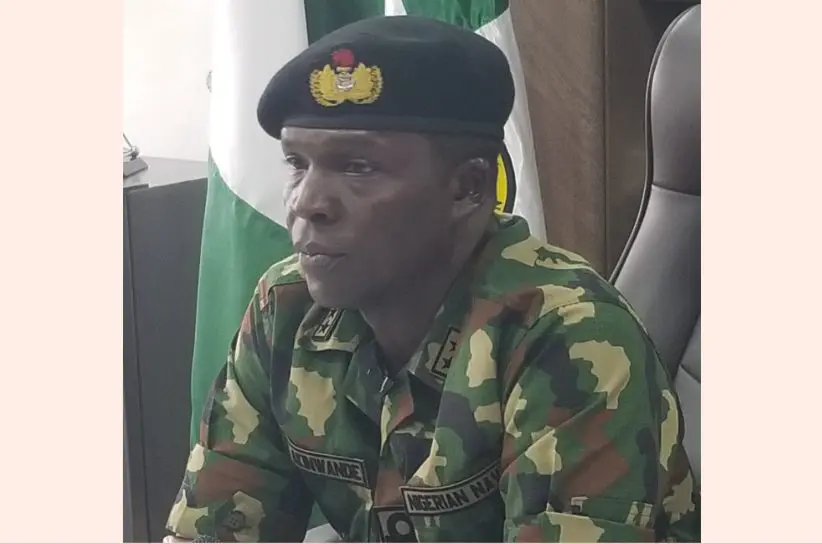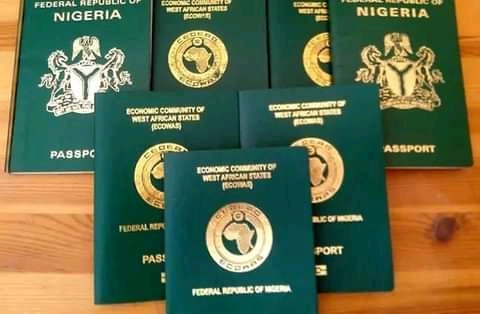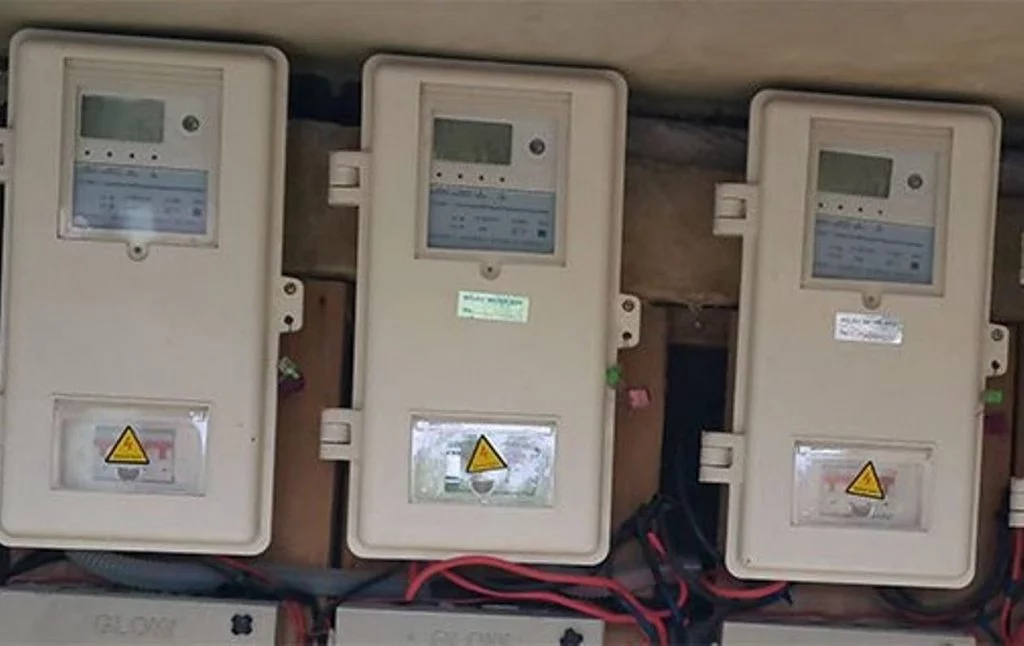News
Navy dismantles 60 illegal refineries in Niger Delta

The Nigerian Navy’s Eastern Naval Command (ENC) has deactivated 60 illicit refinery sites in the Niger Delta region of Nigeria between January and April 2024.
Rear Admiral Saheed Akinwande, the Flag Officer Commanding of the ENC, also revealed that approximately 293,900 liters of illegally refined Automotive Gas Oil (AGO) were seized and destroyed during this period. Additionally, he disclosed that 412,000 liters of stolen crude oil were recovered.
Addressing journalists at his office in Calabar, Rear Admiral Akinwande attributed these accomplishments to Operation Delta Sanity, which has been operational since January under the directive of the Chief of Naval Staff.
He highlighted various achievements of the operation, including an increase in sea patrol time to approximately 1,752 hours, with a cumulative patrol time of around 45,540 and 30 hours by boats and air assets, respectively. The operation also resulted in robust riverine patrol and clearance operations, leading to the arrest of numerous suspects, destruction of several wooden boats, and recovery of illegal bunkering equipment.
Furthermore, Rear Admiral Akinwande emphasized the navy’s intensified efforts against smuggling, resulting in the interception of smuggled parboiled rice and petroleum products. He noted a significant improvement in crude oil production capacity, as verified by the Nigerian Upstream Petroleum Regulatory Commission, attributing it to the navy’s actions against illegal bunkering.
The operational objectives of Operation Delta Sanity are aimed at curtailing illegal oil bunkering, pipeline vandalism, and other crimes in the Niger Delta region, effectively restricting the freedom of action of illicit bunkering syndicates and dismantling illegal refining sites while apprehending suspects and vessels involved.
News
Nigerian Passport Remains Among Top Tenth Worst Travel Document Globally

The value of the Nigerian passport has remained stagnant in the bottom ten.
It is the tenth worst travel document globally, ranked 191 out of 199 countries, according to VisaGuide’s World Passport Index.
The ranking revealed that, as of April, the passport of the so-called giant of Africa is accompanied by countries like North Korea (192), Iraq (193), Libya (194), Sudan (195), Pakistan (196), Afghanistan (197), Syria (198).
The index is a passport ranking system that uses the Destination Significant Score (DSS) to evaluate and rank the passports of countries and territories based on various factors to determine their strength and assign a unique value to each passport.
The ranking also revealed that the Singaporean passport is the strongest in the world, while the Italian passport is second, Spanish is third, French is fourth, and German is fifth.
The report said, “To reach a unique ranking, we assign a value, which we call Destination Significance Score (DSS), to each travel destination.”
It added, “A unique DSS value is assigned to each destination based on the entry policy it enforces on the passport, GDP, Power Index, Tourism Index and Human Development Index (HDI), among other factors.
The DSS is multiplied with the value of the visa requirement of the destination country toward the selected passport holders.”
Other factors are visa-free travel, electronic travel authorisation, visa on arrival, electronic visa (e-visa), embassy or other government-approved visas, passport-free travel, and banned entry.
It also noted that since destination countries are each assigned a unique DSS, “being able to travel visa-free to a destination with a higher DSS gives the selected passport a higher value than having visa-free access to a country with lowed (sic) DSS.”
“This results in a more accurate ranking for each passport,” stated the index.
It also mentioned that after all factions were calculated, each passport had its unique value, with no two countries having the same number of “visa-free” destinations.
In January, the Henley Passport Index listed the Nigerian passport among the worst 10 performing travel documents worldwide. Using travel data collected from the International Air Transport Association (IATA), the ultimate factor considered when evaluating passports is the number of countries the holder can enter without requiring a visa.
The Nigerian green passport was ranked among the world’s bottom 10, alongside insecurity-battered Libya, Somalia, Syria and Afghanistan ranking last, according to the 2024 report of the Henley Passport Index.
Nigeria, together with Iran, Lebanon and Sudan, ranked 95th.
Bearers of these passports can only access 45 countries.
Nigeria dropped many positions below South Africa, ranked 53rd, as its passport bearers can enter 108 nations easily without the hassles of obtaining a visa.
Burundi, Liberia, South Sudan, the Democratic Republic of the Congo, and Congo Brazzaville ranked higher than Nigeria, evidencing the continued erosion of Nigeria’s credibility with its international peers.
Other African nations, including Ghana, which placed 76th, Benin Republic 79th, Togo 83rd, Nigér Republic 85th, all have better rankings than Nigeria.
Last year, Nigeria ranked 180th of 199 nations and has consistently ranked lower in previous years.
CREDIT: journalist101
News
Nigerians to pay more for electricity meters as NERC approves price deregulation

Nigerians will face increased costs when obtaining electricity meters, as the Nigerian Electricity Regulatory Commission (NERC) has announced the deregulation of meters provided to electricity consumers under the Meter Asset Providers (MAP) scheme. This decision was disclosed on Monday through an order signed by the Chairman, Sanusi Garba, and the Commissioner of Legal, Licensing, and Compliance, Dafe Akpeneye.
According to the Commission, this move is aimed at allowing end-use electricity customers to procure meters from MAPs of their choice, based on competitive open market prices. This means that customers who were previously paying fixed prices, such as N81,975.16 for single-phase meters and N143,836.16 for three-phase meters, will now need to pay prices determined by the meter providers.
The Commission stated, “The cost of meters deployed under the MAP scheme is hereby deregulated to enable end-use customers to acquire meters from MAPs of their choice based on competitive open market prices determined from transparent bidding frameworks.” It also noted that all MAP permit holders are now eligible to provide services and transact with any Distribution Company (Disco) in Nigeria, subject to compliance with Disco-specific requirements.
Furthermore, all Discos are required to ensure the seamless integration of smart meters deployed by MAPs with their head-end systems and meter data management systems. This development follows NERC’s approval of a tariff increase of over 200% for customers receiving 20 hours of power supply, which occurred several weeks ago.
News
King Charles III returns to public duties after cancer treatment

King Charles III is set to resume his public responsibilities following the positive outcome of his cancer treatment. The monarch has been undergoing treatment since being diagnosed with cancer in early February this year. Despite the encouraging news of his response to treatment, King Charles remains affected by cancer, the specific type of which has not been disclosed. He will receive ongoing treatment for his condition while carrying out his public duties.
King Charles and Queen Consort Camilla are scheduled to visit a cancer treatment center on Tuesday to meet with medical specialists and patients. This event aims to raise awareness about the importance of early diagnosis and highlight innovative research supported by Cancer Research UK at the hospital.
In January, King Charles underwent a three-night hospital stay for a procedure on an enlarged prostate, during which the cancer was detected. Following the announcement of his diagnosis on February 6, he temporarily suspended all public engagements but continued fulfilling his duties as head of state within the palace, conducting audiences and Privy Council meetings.
-

 World News7 months ago
World News7 months agoWhat we know about Israel’s war with Hamas
-

 Sports7 months ago
Sports7 months agoLaLiga: Everyone want to play with him – Vinicius on player Real Madrid should sign
-

 World News7 months ago
World News7 months agoIran calls on Islamic, Arab countries to confront Israel
-

 Tech7 months ago
Tech7 months agoTop 10 AI Skills to Learn in 2023
-

 Entertainment7 months ago
Entertainment7 months agoBET Hip-Hop Awards: Black Sherif wins big as Burna Boy loses seven nominations
-

 Entertainment6 months ago
Entertainment6 months ago‘Black Panther’ star Lupita Nyong’o breaks up with boyfriend, Selema Masekela
-

 ICT8 months ago
ICT8 months agoApple Bows To EU, Unveils iPhone With USB-C Charger
-

 World News7 months ago
World News7 months agoZelensky seeks defences for winter on visit to NATO




